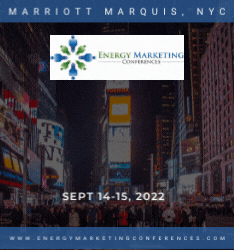|
|
|
|
|
Updated: The following story is brought free of charge to readers by EC Infosystems, the exclusive EDI provider of EnergyChoiceMatters.com
Chris Ercoli, President and CEO of the Retail Energy Advancement League (REAL), issued the following statement concerning the adopted bill:
"The proposed closure of the competitive energy market was at odds with the intent of this climate bill as more than three quarters of the retail market offerings are 100% clean energy products with additional innovative products supporting energy efficiency measures and offering discounted residential electric vehicle charging. We appreciate lawmakers acting on behalf of almost half a million Massachusetts customers who currently shop the market by removing this language and we look forward to continued conversations on how to best expand choice, while protecting the consumer as Massachusetts leads in our transition to a clean energy future."
--- Statement from Chris Ercoli, President and CEO of the Retail Energy Advancement League
REAL noted that more than 1,200 Massachusetts customers signed a petition to lawmakers requesting the removal of the proposed ban and to protect their energy choice (story here)
Earlier (7/22):
A Massachusetts conference committee has reached a compromise on a broad-reaching climate bill, with the conference version of the bill, which has been passed by both houses and sent to the Governor, omitting language from a Senate version which would have prohibited individual retail electric choice for residential customers
As previously reported, the Senate version of the bill had included language providing that, "beginning on
January 1, 2023, no supplier as defined in section 1 of chapter 164 of the General Laws shall
execute a new contract or renew an existing contract for generation services with any individual
residential retail customer."
The Senate bill would have excluded municipal aggregation from this prohibition
The House version of the bill did not include the prohibition.
The language prohibiting residential retail electric choice has been omitted from a conference committee report, which has been passed by both houses and sent to the governor as H. 5060
H. 5060 provides that the secretary of the executive office of energy and environmental
affairs, in consultation with the department of energy resources and the department of public
utilities, "shall investigate the advantages and disadvantages of using or participating in regional
or multi-state competitive market-based mechanisms, structures, systems or competitive
solicitations in order to facilitate the development of clean energy generation resources,
including but not limited to offshore wind energy generation, to meet the commonwealth’s clean
energy needs and comply with the statewide greenhouse gas emission limits and sublimits
established pursuant to chapter 21N of the General Laws, while providing benefits for the
commonwealth."
"Such mechanisms, structures, systems or competitive solicitations may include
long-term contracts, ISO New England Inc. administered markets or any other exchanges,
banking, credits, charges, exactions or electricity transactions consistent with rules and protocols
established by state regulation designed to achieve the statewide greenhouse gas emissions limits
and sub-limits required by said chapter 21N," the bill states
"[T]he secretary and the department of energy
resources may adopt regulations establishing or governing such market-based mechanisms,
structures, systems, or competitive solicitations which may include long-term contracts, ISO
New England Inc. administered markets or any other exchanges, banking, credits, charges,
exactions, or electricity transactions consistent with rules and protocols established by state
regulation, including in cooperation with other states in the ISO New England Inc. service area,
in order to reduce greenhouse gas emissions from sources or categories of sources and comply
with the statewide greenhouse gas emission limits and sublimits established pursuant to chapter
21N of the General Laws," the bill states
The bill requires the EDCs to develop time-of-use rates for EV customers
As used in the following provision, the bill defines "time-of-use rate" to mean a rate designed
to reflect the cost of providing electricity to a consumer charging an electric vehicle at an electric
vehicle charging station at different times of the day.
The bill provides, "Not later than 12 months after the effective date of this act, distribution companies as
defined in section 1 of chapter 164 of the General Laws, shall submit proposals to the department
for approval to offer a time-of-use rate. The proposals shall not include additional demand
charges. The proposals shall include a separate opt-in residential time-of-use rate for electric
vehicle owners or lessees."
The bill requires that, "Not later than 6 months after the effective date of this act, distribution
companies as defined in section 1 of chapter 164 of the General Laws shall submit proposals to
the department of public utilities for approval to offer rate credits or rebates to consumers that
charge their electric vehicles during off-peak hours. The rebate or credit amount shall include the
value of: (i) avoided energy and capacity costs; (ii) avoided transmission costs; (iii) avoided
distribution costs; (iv) improved grid reliability; (v) capacity benefits in the form of demand2045 induced price reduction effects; (vi) avoided greenhouse gas emissions; and (vii) public health
benefits."
The bill also provides for additional long-term contracting by the EDCs for offshore wind and other energy, similar to the existing process
The bill charges the relevant regulators to investigate requiring EDCs to jointly and competitively conduct energy storage systems
solicitations and procurements of up to 4,800 gigawatt hours of stored energy from renewable
generation delivered to periods of high demand each year
The bill requires the EDCs to file new grid modernization plans
ADVERTISEMENT Copyright 2010-21 Energy Choice Matters. If you wish to share this story, please
email or post the website link; unauthorized copying, retransmission, or republication
prohibited.
Language Prohibiting Residential Retail Electric Choice Removed From Final Climate Bill Sent To Massachusetts Governor
Bill Sent To Gov. Requires Investigation Of Advantages & Disadvantages Of RTOs, Other Market Mechanisms In Facilitating Green Energy
July 22, 2022
Email This Story
Copyright 2010-21 EnergyChoiceMatters.com
Reporting by Paul Ring • ring@energychoicematters.com
NEW Jobs on RetailEnergyJobs.com:
• NEW! -- Controller for C&I-only Retail Electricity Supplier
• NEW! -- Energy Advisor, PJM -- Retail Supplier
• NEW! -- Senior Retail Transportation Analyst (Gas Transport Services)
• NEW! -- Sales Business Development Manager – Residential Sales
-- Retail Supplier
• NEW! -- Regulatory Affairs Specialist
-- Retail Supplier -- Houston
• NEW! -- Senior Supply & Schedule Analyst
-- Retail Supplier
• NEW! --
Field Analyst I, Sales Quality
-- Retail Supplier
• NEW! --
Regulatory Compliance and Strategy Manager
-- Retail Supplier
• NEW! --
Channel Marketing Strategy Lead
-- Retail Supplier
•
Accounting Manager -- Retail Supplier
•
Business Development Analyst -- Retail Supplier
•
Chief Sales and Marketing Officer -- Retail Supplier
•
Regional Manager: Power Marketing
• Gas Scheduler I - Retail Supplier
|
|
|
|









